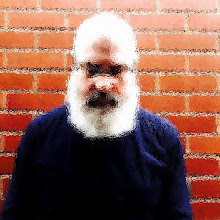Brad Davis
 Brad Davis born 6 November 1949 (d. 1991)
Brad Davis born 6 November 1949 (d. 1991)Robert Creel Davis, better known as Brad Davis, was an American actor. He was perhaps best known for his role in the 1978 film, Midnight Express.
Davis was born in Tallahassee, Florida to Eugene Davis, a dentist whose career declined due to alcoholism, and his wife, the former Anne Creel. His brother, Gene Davis, is also an actor. According to an article in The New York Times published in 1987, the actor's mother sexually abused him and as an adult, he was an alcoholic and a drug user before becoming sober in 1981.
Davis was known as 'Bobby' during his youth, but took Brad as his stage name in 1973.
At seventeen, after winning a music talent contest, Davis worked at Theatre Atlanta. He later moved to New York City and attended the American Academy of Dramatic Arts, as well as studied acting at the American Place Theater. After a role on the soap opera How to Survive a Marriage, he performed in off-Broadway plays. In 1976 he was cast as Sally Field's love interest in the television film Sybil. He played the lead role in Larry Kramer's play about AIDS, The Normal Heart (1985).
 His most successful film role was as the main character in Midnight Express (1978). The homoerotic shower scene in that movie, along with Davis's performance as a gay sailor in Rainer Werner Fassbinder's Querelle (1983) and other homosexual roles, made him a gay film icon.
His most successful film role was as the main character in Midnight Express (1978). The homoerotic shower scene in that movie, along with Davis's performance as a gay sailor in Rainer Werner Fassbinder's Querelle (1983) and other homosexual roles, made him a gay film icon. His performance in Midnight Express earned him a Golden Globe award as best new actor, but other important roles were not immediately forthcoming. His next film, Rob Cohen's A Small Circle of Friends (1980), was not a success, and his role in Hugh Hudson's 1981 hit Chariots of Fire was a relatively minor one.
His performance in Midnight Express earned him a Golden Globe award as best new actor, but other important roles were not immediately forthcoming. His next film, Rob Cohen's A Small Circle of Friends (1980), was not a success, and his role in Hugh Hudson's 1981 hit Chariots of Fire was a relatively minor one. In 1983 Davis took a professional risk by accepting the title role in Querelle, Rainer Werner Fassbinder's screen adaptation of a novel by Jean Genet. Associates in the entertainment industry warned Davis that taking this part, especially after performances in other gay-themed theatrical works such as Larry Kramer's Sissies' Scrapbook (1973) and Joe Orton's Entertaining Mr Sloane (1981), would be detrimental to his career. Nevertheless, Davis chose to work with Fassbinder on what would turn out to be the director's last film. Unfortunately, Querelle was a commercial failure and generally not well-received by critics.
In 1983 Davis took a professional risk by accepting the title role in Querelle, Rainer Werner Fassbinder's screen adaptation of a novel by Jean Genet. Associates in the entertainment industry warned Davis that taking this part, especially after performances in other gay-themed theatrical works such as Larry Kramer's Sissies' Scrapbook (1973) and Joe Orton's Entertaining Mr Sloane (1981), would be detrimental to his career. Nevertheless, Davis chose to work with Fassbinder on what would turn out to be the director's last film. Unfortunately, Querelle was a commercial failure and generally not well-received by critics.Davis continued to find work in foreign films and on television, including the title role in Marvin J Chomsky's 1985 mini-series, Robert Kennedy & His Times, but he never realised his full potential as a film actor. Homophobia in Hollywood is one possible cause of this, but the problem was exacerbated by Davis's reputation for erratic behaviour - mostly off the set - caused by alcohol and drug use.
Davis, a longtime alcohol-abuser who had begun using cocaine while filming Midnight Express, joined Alcoholics Anonymous in 1981 and eventually became sober; but during the period of his substance abuse, he was involved in a number of incidents of unruly conduct, some of which led to arrests.
In 1976 Davis married to Susan Bluestein, who later became a casting director. They had one child, Alexandra. In 1985 Davis learned that he was HIV-positive. Fearing that he would be unemployable if word of his condition became known, he shared the information only with his wife
Although it has been publicised that Davis died of AIDS in 1991 in Los Angeles, he technically died of assisted suicide by an overdose of drugs, according to the book After Midnight: The Life and Death of Brad Davis, written by his widow. Davis was referred to as 'the first heterosexual actor to die of AIDS'; he was, however, reportedly bisexual and his bisexuality was well known to people in the entertainment industry. Bluestein Davis acknowledged that in his early years in New York, her late husband had 'hustled' in Times Square and had lived with a transvestite, but she insisted that he was heterosexual, and held the view that he had contracted HIV through his drug use.
In an interview that appears in Boze Hadleigh's book Hollywood Gays, Davis himself acknowledged having had sex with men and, when asked if he considered himself bisexual, he replied 'didn't someone once say that everyone's bisexual, deep down?'
His widow continues to campaign against AIDS.
Labels: Actors, Alcoholics, Bisexuals, Death by suicide, Death from HIV/Aids, Drugs, Film, Theatre


0 Comments:
Post a Comment
<< Home